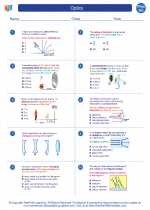Gametes
Gametes are specialized reproductive cells that are involved in sexual reproduction. In humans, gametes are the sperm cells in males and the egg cells in females. These cells are responsible for carrying the genetic information from one generation to the next.
Types of Gametes
There are two types of gametes:
- Sperm (male gamete): Sperm cells are produced in the testes through a process called spermatogenesis. These cells are small, motile, and designed to fertilize the egg.
- Egg (female gamete): Egg cells, or ova, are produced in the ovaries through a process called oogenesis. These cells are larger than sperm cells and contain the necessary components to support early embryonic development.
Formation of Gametes
The process of gamete formation involves meiosis, a specialized type of cell division that reduces the chromosome number by half. This reduction is essential for maintaining the correct number of chromosomes in the offspring. During meiosis, genetic recombination also occurs, leading to genetic diversity among the gametes.
Role in Sexual Reproduction
Gametes play a crucial role in sexual reproduction. During fertilization, a sperm cell fuses with an egg cell, resulting in the formation of a zygote. The zygote contains a complete set of chromosomes, half from the mother and half from the father, and it develops into a new organism.
Study Guide
To study gametes, it's important to focus on the following key points:
- Understand the differences between sperm and egg cells in terms of size, function, and production.
- Learn the process of gamete formation through meiosis, including the stages of meiosis and the significance of genetic recombination.
- Explore the role of gametes in sexual reproduction, including fertilization and the formation of a zygote.
- Consider the importance of genetic diversity among gametes and its implications for offspring.
Additionally, it can be helpful to review diagrams or animations of meiosis and fertilization to visualize the processes involved in gamete formation and sexual reproduction.
Remember to practice applying these concepts through sample problems or questions to reinforce your understanding.
By mastering the topic of gametes, you will gain a deeper understanding of the fundamental processes underlying sexual reproduction and genetic inheritance.



